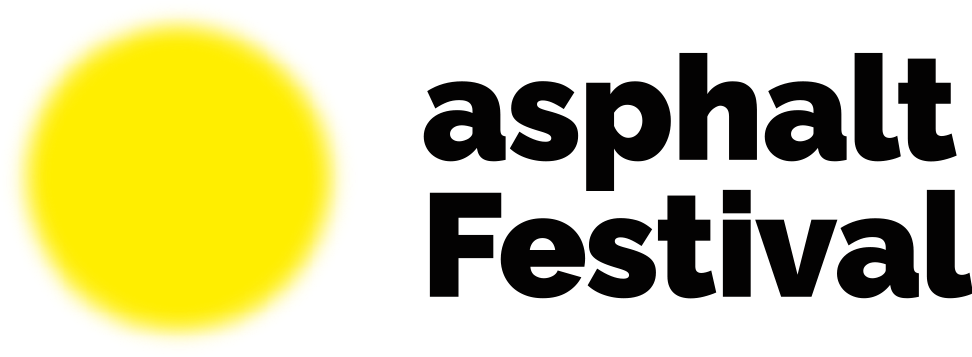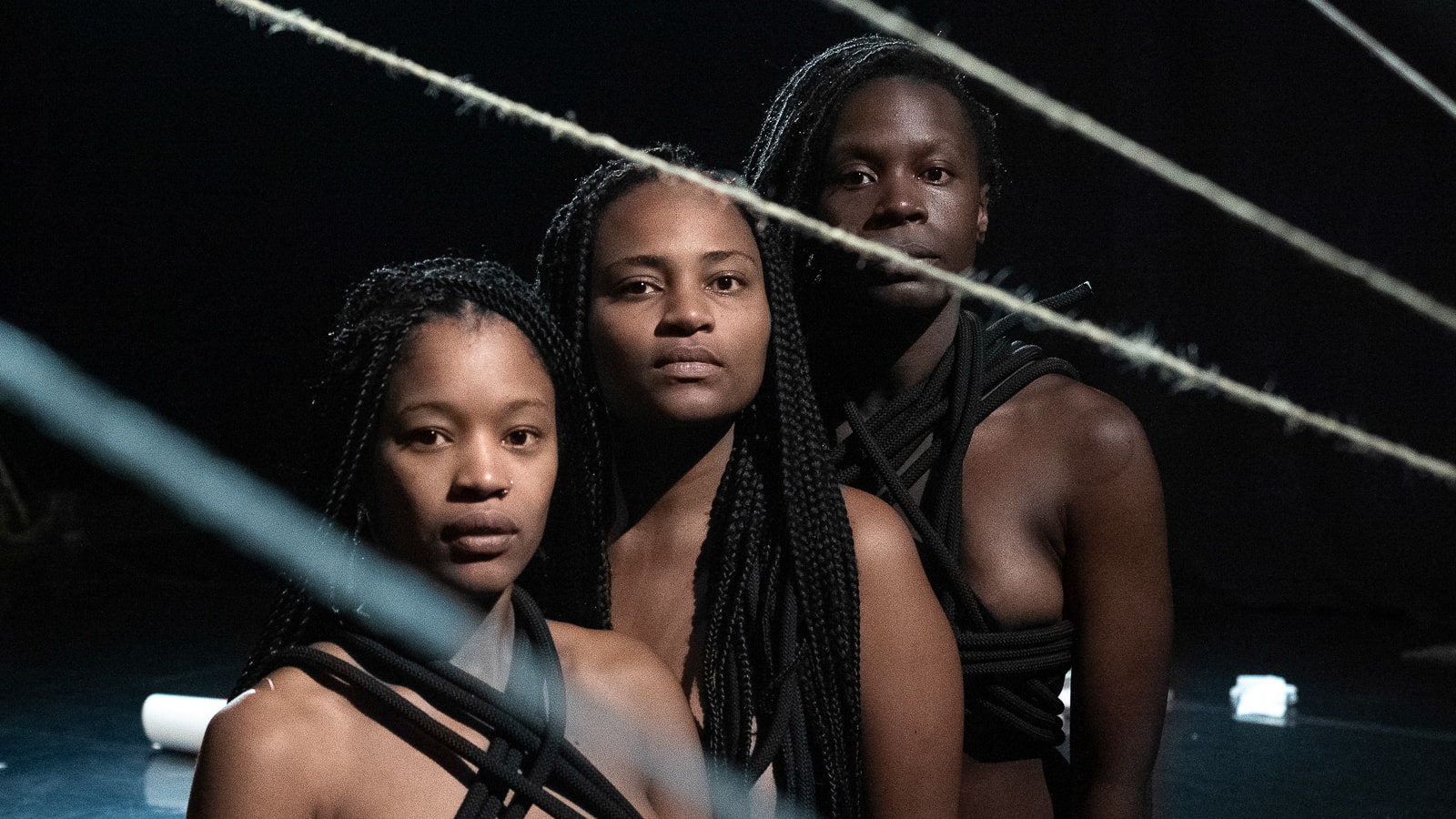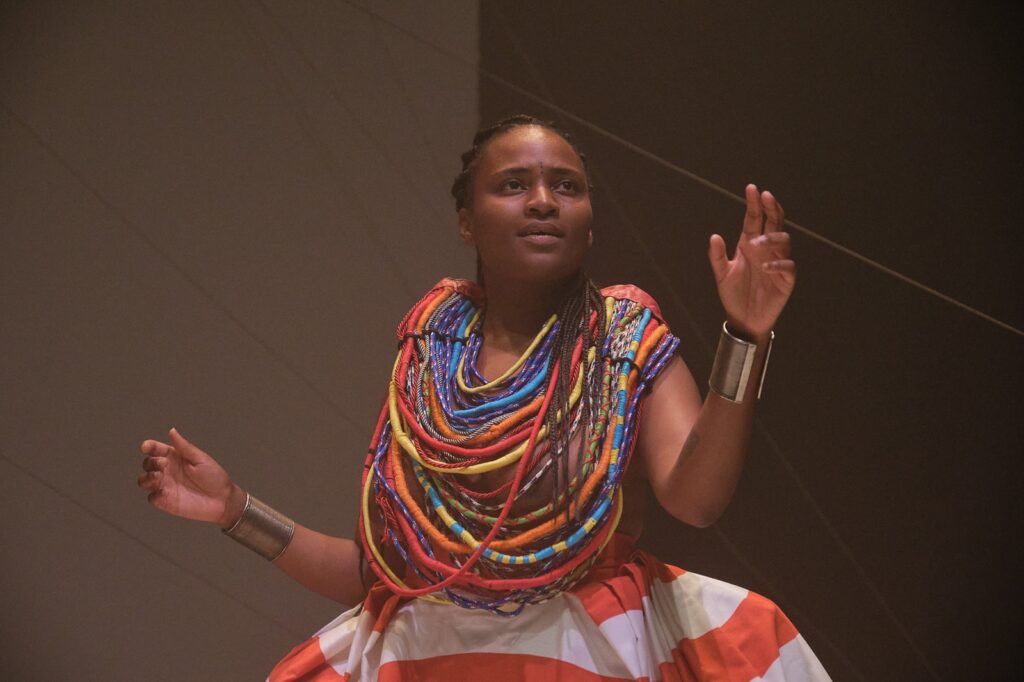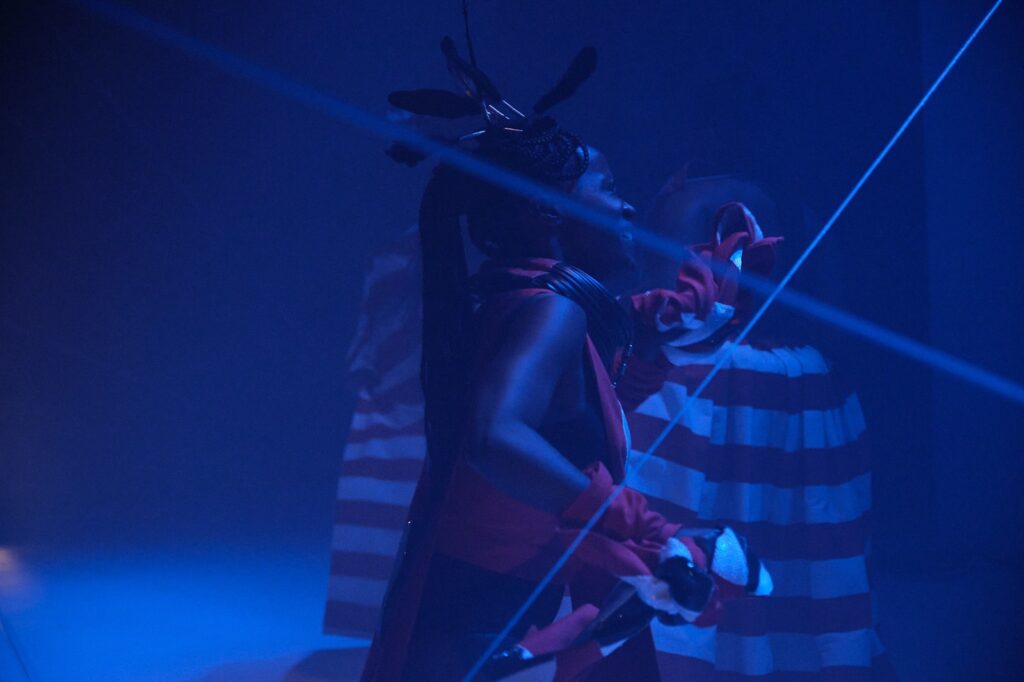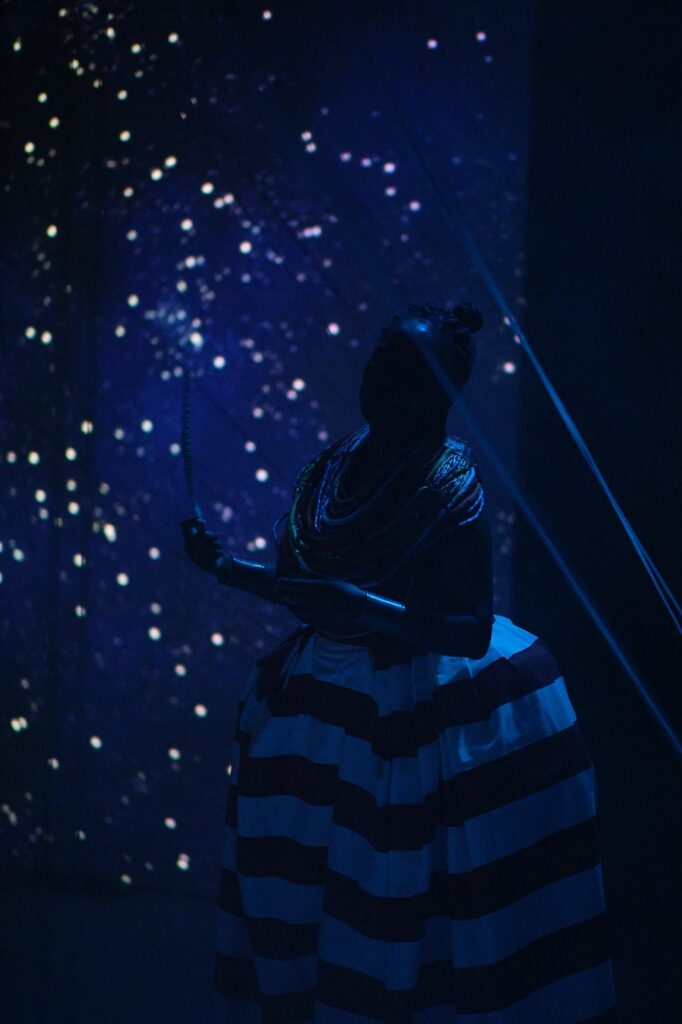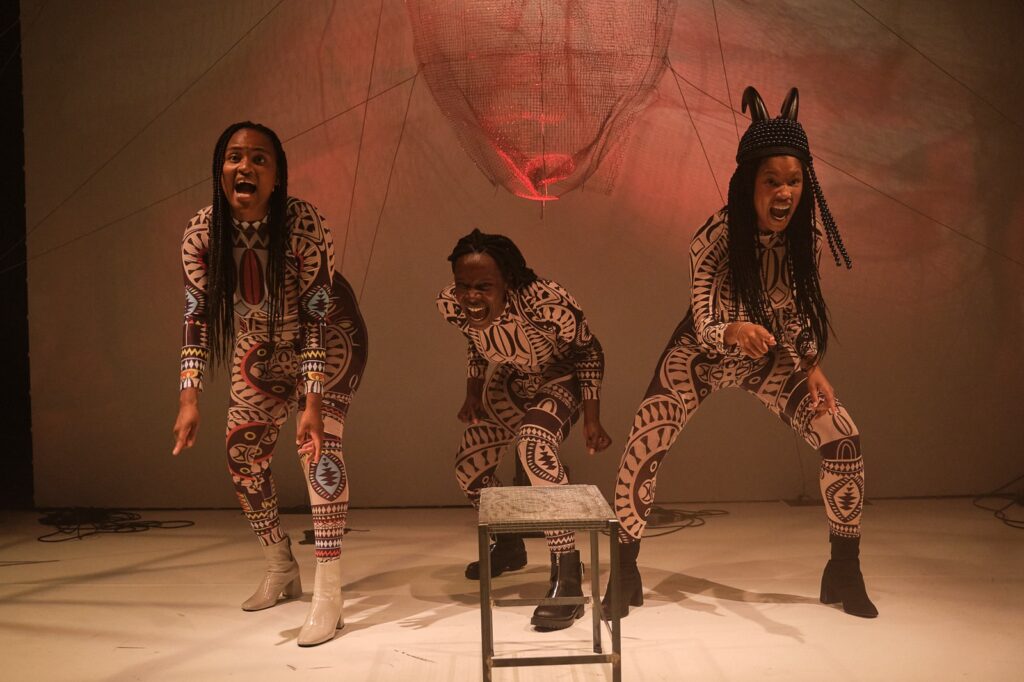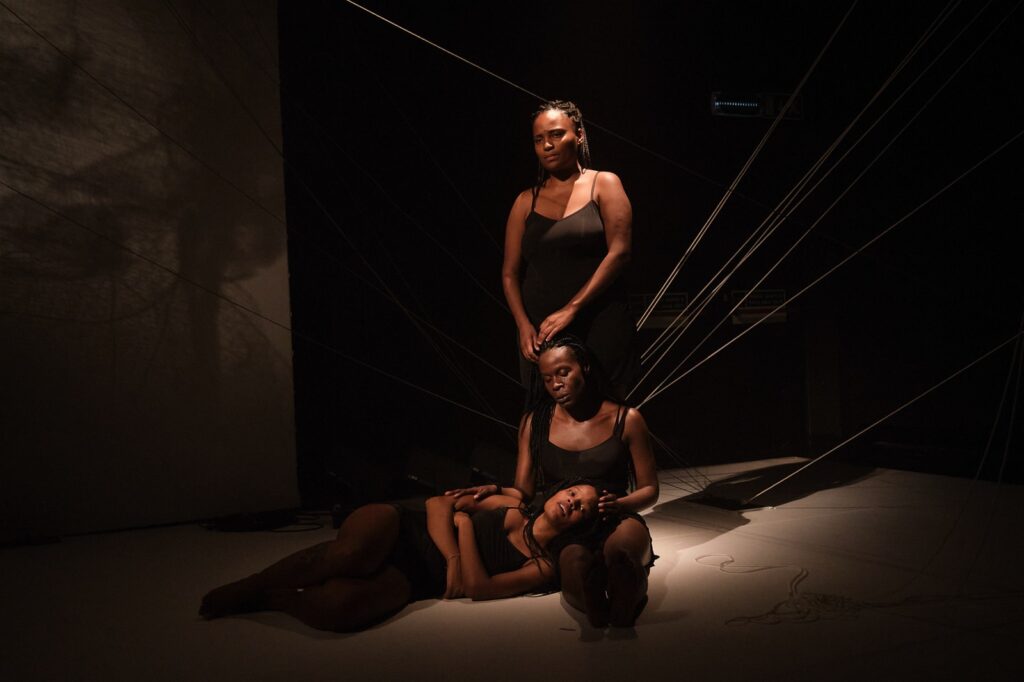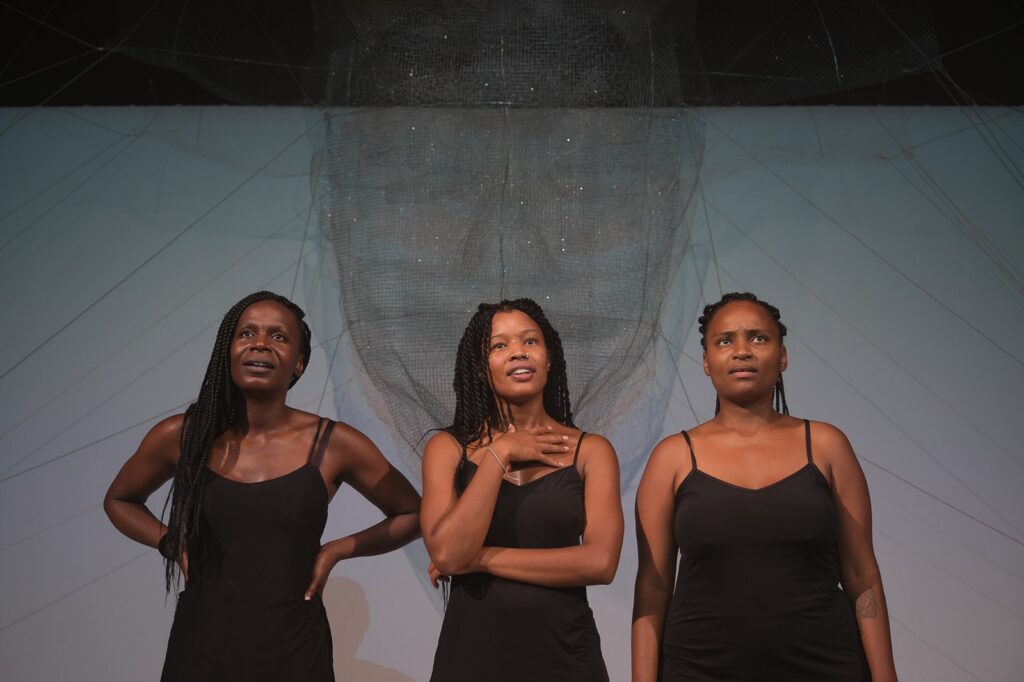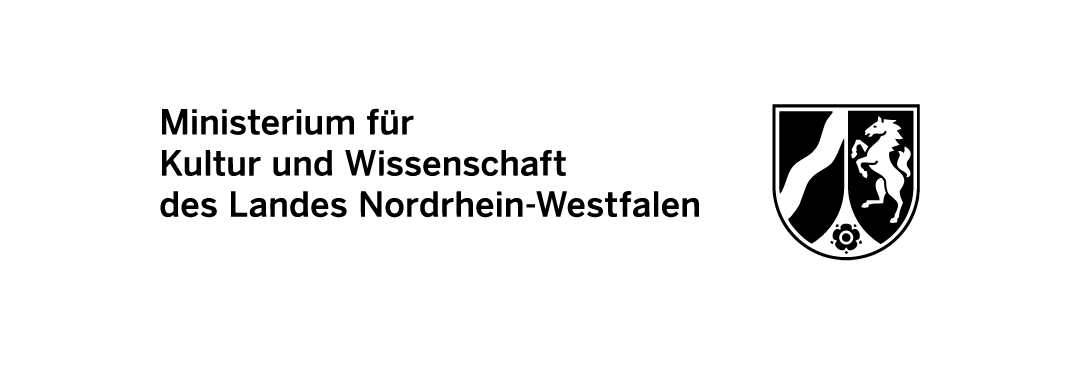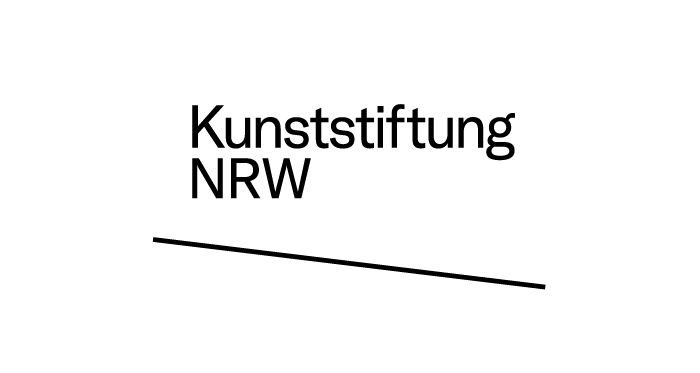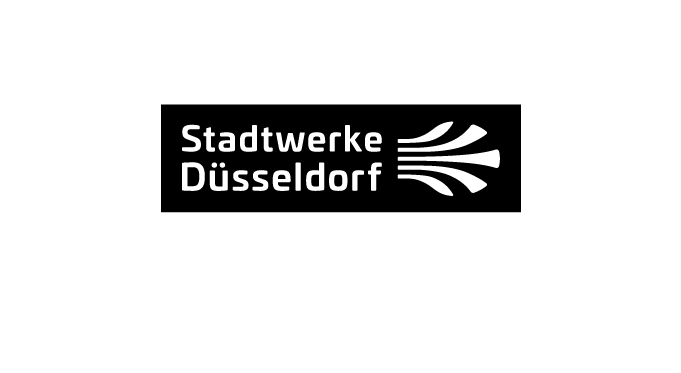It’s time
for the sun
to rise
How are black people represented in a still predominantly white theatre landscape? “Aurora Negra” (“Black Dawn”) tells of life as a black female artist in Europe, of migration and racism, but also of stereotypes, attributions and projections. The piece is an attempt to break through the structural invisibility of black people in the performing arts. The Portuguese performers Cleo Diára, Isabél Zuaa and Nádia Yracema have roots in Cape Verde, Angola and Guinea-Bissau. In “Aurora Negra”, they search for their identity and for a connection to their ancestors in Africa, tell autobiographical stories, revive ceremonies and rituals, dance, sing songs from their youth and quote the names of important black women in order to keep them from slipping into oblivion. Self-confident, combative and full of relish, they determine what is told and how. Humour and irony are omnipresent in this piece, but the satire never becomes bitter. Above all, you can see that the artists take great pleasure in being who they are.
Cleo Diára, Isabél Zuaa and Nádia Yracema are graduates of the ESTC theatre and film school in Lisbon and work internationally for theatre, dance and cinema productions. They founded their collective “Aurora Negra” for play developments in which they can assert themselves as protagonists of their own story – not as objects. Their first joint production, “Aurora Negra”, premiered at the Teatro Nacional D. Maria II in Lisbon in 2020. It was the first performance there of a play written and presented on stage by black Portuguese women of African descent.
– – –
What the press says:
“A brilliant evening that has nothing didactic about it, despite its heavy lifting. It makes you think, yes. But above all, this evening makes you happy.” (Georg Kasch, nachtkritik)
“The young women are first stunned, then angry and they reclaim the stage. And reap enthusiastic standing ovations from the audience!” (Marie-Dominique Wetzel, SWR Kultur)
– – –
Funded by the Ministry of Culture and Science of the State of NRW and the Kunststiftung NRW
by and with Cleo Diára, Isabél Zuaa, Nádia Yracema
Stage: Tony Cassanelli
Costume: José Capela, Maria dos Prazeres, Marina Tabuado
Technical direction: Roger Madureira
Lighting design and video mapping: Felipe Drehmer
Light and sound: Júlio Brechó
Original composition and sound design: Carolina Varela, Yaw Tembe
Voice over casting: Inês Vaz
Props and styling: Eloisa D’Ascensão, Jorge Carvalhal
Dramaturgy assistant: Sara Graça, Teresa Coutinho
Movement assistant: Bruno Huca
Research assistant: Melánie Petremont
Creative support: Bruno Huca, Inês Vaz
Production: Cama A.C
Production management: Maria Tsukamoto
Co-production: Teatro Nacional D. Maria II, Centro Cultural Vila Flor, O Espaço do Tempo, Teatro Viriato
Translation, creation of surtitles: Niki Graça
